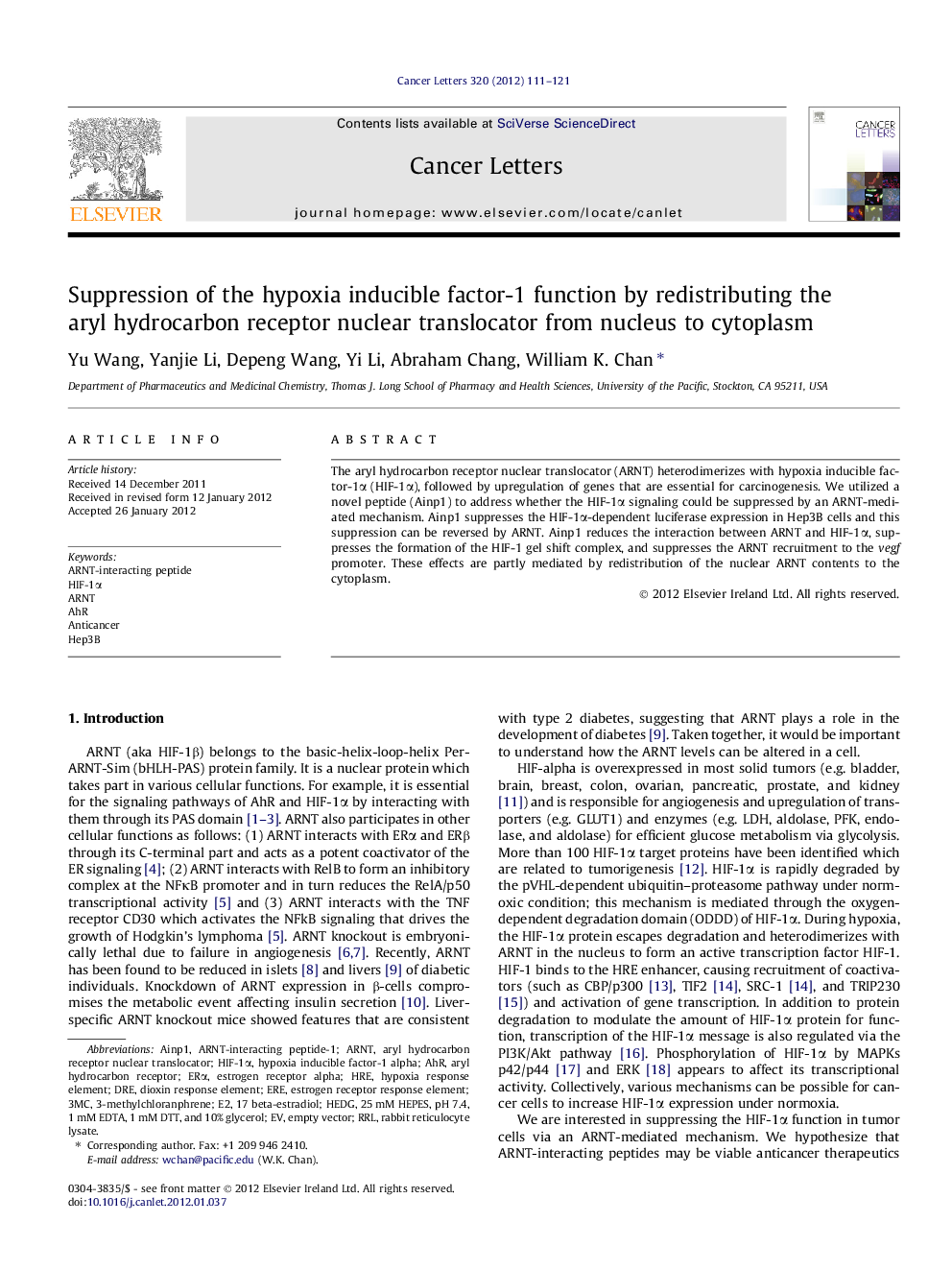| کد مقاله | کد نشریه | سال انتشار | مقاله انگلیسی | نسخه تمام متن |
|---|---|---|---|---|
| 2113355 | 1084462 | 2012 | 11 صفحه PDF | دانلود رایگان |
عنوان انگلیسی مقاله ISI
Suppression of the hypoxia inducible factor-1 function by redistributing the aryl hydrocarbon receptor nuclear translocator from nucleus to cytoplasm
دانلود مقاله + سفارش ترجمه
دانلود مقاله ISI انگلیسی
رایگان برای ایرانیان
کلمات کلیدی
DRE, dioxin response elementHIF-1?, hypoxia inducible factor-1 alphaARNT, aryl hydrocarbon receptor nuclear translocator - ARNT، اتمسفر هسته ای گیرنده آرویید هیدروکربنER?, estrogen receptor alpha - ER، گیرنده استروژن آلفاHRE, hypoxia response element - HRE، عنصر پاسخ هیپوکسیAhR, Aryl hydrocarbon receptor - گیرنده آریل هیدروکربن
موضوعات مرتبط
علوم زیستی و بیوفناوری
بیوشیمی، ژنتیک و زیست شناسی مولکولی
تحقیقات سرطان
پیش نمایش صفحه اول مقاله

چکیده انگلیسی
The aryl hydrocarbon receptor nuclear translocator (ARNT) heterodimerizes with hypoxia inducible factor-1α (HIF-1α), followed by upregulation of genes that are essential for carcinogenesis. We utilized a novel peptide (Ainp1) to address whether the HIF-1α signaling could be suppressed by an ARNT-mediated mechanism. Ainp1 suppresses the HIF-1α-dependent luciferase expression in Hep3B cells and this suppression can be reversed by ARNT. Ainp1 reduces the interaction between ARNT and HIF-1α, suppresses the formation of the HIF-1 gel shift complex, and suppresses the ARNT recruitment to the vegf promoter. These effects are partly mediated by redistribution of the nuclear ARNT contents to the cytoplasm.
ناشر
Database: Elsevier - ScienceDirect (ساینس دایرکت)
Journal: Cancer Letters - Volume 320, Issue 1, 1 July 2012, Pages 111–121
Journal: Cancer Letters - Volume 320, Issue 1, 1 July 2012, Pages 111–121
نویسندگان
Yu Wang, Yanjie Li, Depeng Wang, Yi Li, Abraham Chang, William K. Chan,